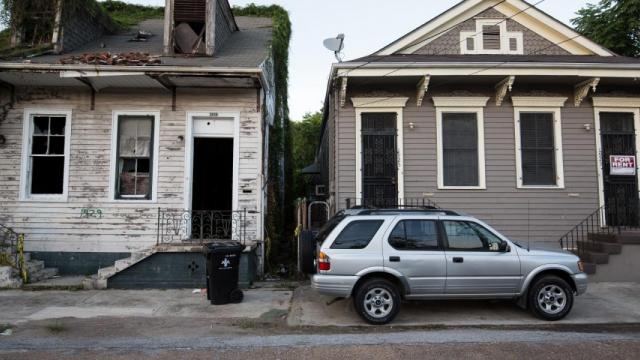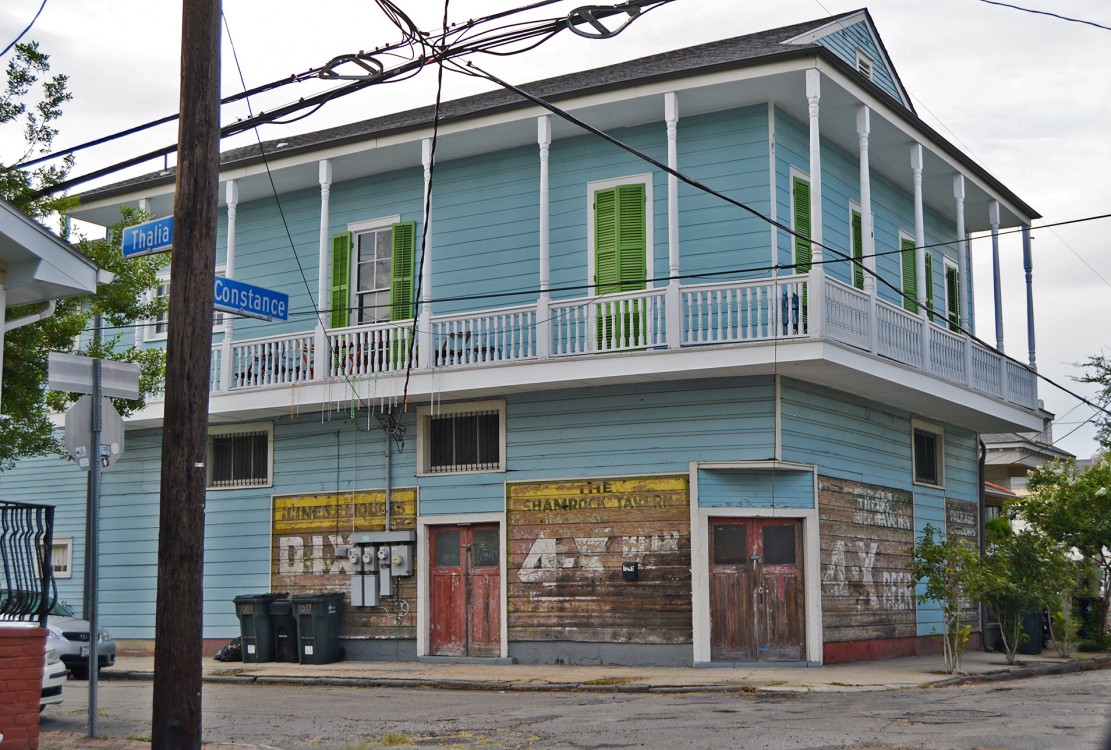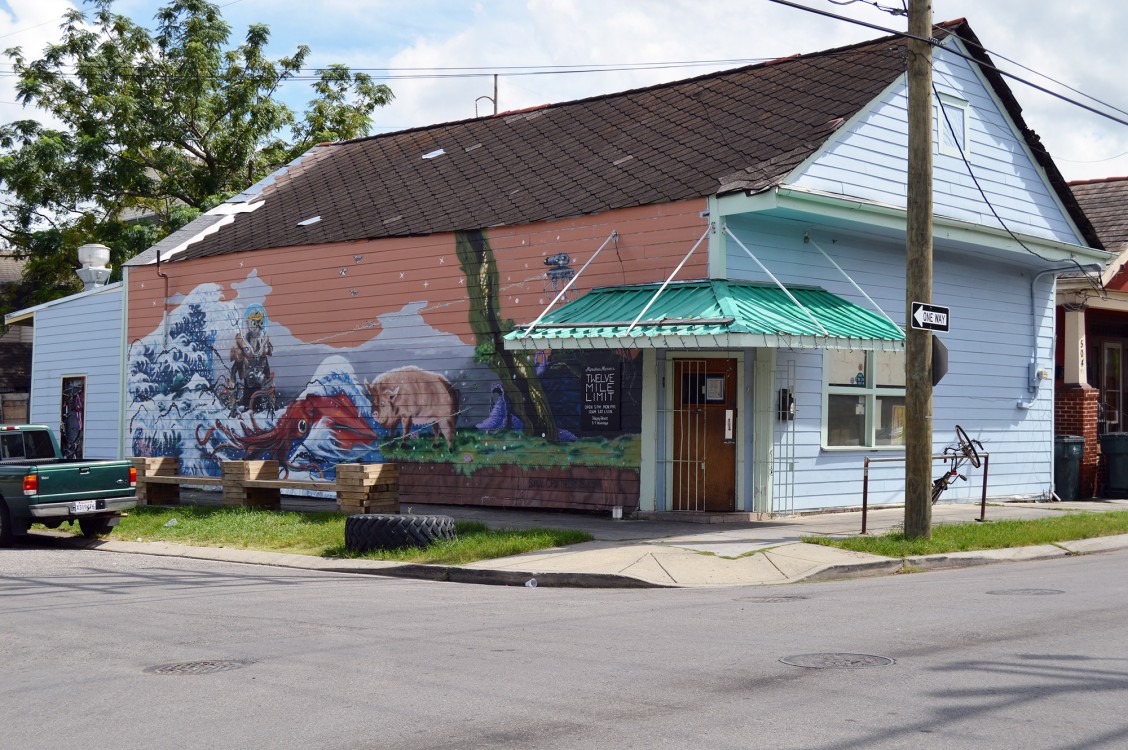
Twenty-four-year old Stuart Marino is a finance major at University of New Orleans with $8,000 in student loan debt and 33 credit hours until graduation. But the alternative to obtaining that diploma is worse. As statistics show, those not having a college degree are much more likely to remain poor. Marino was not fortunate enough to have been born a decade earlier. Then, tuition at UNO was half of what it is now. During Republican Governor Bobby Jindal’s term, from 2007 to 2015, tuition at Louisiana public colleges skyrocketed due to massive budget cuts.
Despite having a job, Marino says he spends more than 30 percent of his income on rent and utilities. He would not be able to cover the cost of a $1,000 medical emergency. Indeed, he has delayed getting his car fixed, something vital to reaching his job and school.
“Fixing my car would be something I would be doing with that $700,” he said, referring to the monthly rent.
Marino's story personifies what many people here and nationwide have experienced over the last decade as rents in cities and even in urban areas of less than 1 million have soared, exacerbating income inequality while disproportionately affecting racial minorities, the less educated and millennials.
In the last year alone, rents in the U.S. have increased 3 percent, according to Apartment List. In New York City and San Francisco, the median rent has climbed to $4,500 and higher. The cost of living in these cities can be understood as the price, however astronomical, of living in one of the country's major economic centers, where industries like finance and tech pay high salaries.
But in smaller cities such as Miami and New Orleans, both of which count on tourism as a major source of revenue, more than a third of residents devote 50 percent of their monthly income to rent and utilities, according to Make Room, a campaign by the non-profit Enterprises Inc. that aims to create more affordable housing.
Factor in stagnant wages, a low supply of multi-unit housing, and higher credit requirements post-Recession, and the number of Americans paying 30 percent or more of their gross income on rent and utilities has risen by 22 percent in the past decade. This goes against what financial experts recommend: that people spend no more than 30 percent on basic monthly costs in order to have a cushion in case of catastrophic events like a job loss or a medical emergency.
Working harder is, in most cases, not an option. According to last month's Bureau of Labor Statistics report, the number of Americans involuntarily working part-time has reached 6 million, and is showing “little movement since November.”
The housing crisis in New Orleans
New Orleans has undergone many changes since Hurricane Katrina devastated the city in August 2005. And not all of them have been positive. Sociological studies show that renters are more likely to remain displaced than homeowners. In areas of the city like the Lower 9th Ward, where most residents rented, fewer have returned since Katrina than in neighborhoods where home ownership was predominant – even including those areas that flooded. For those who have returned with few economic resources, many face a long wait for housing; according to the Housing Authority of New Orleans, in September 2015 more than 13,000 people, disproportionally African-American, were still waiting for housing vouchers.
Changing the current housing reality is akin to shoring up the foundation of a home; it can be done, but not easily. “Fundamentally, building housing is costly,” David Reiss, a professor at Brooklyn Law School and an expert in real estate and community development, told Occupy.com.
A free market economy incentivizes people to invest in something only in exchange for profit. That leaves the job of providing affordable housing up to government, but municipalities have moved away from programs establishing dense urban public housing.
Reiss pointed out that vertical expansion could alleviate high rents in urban areas. But many residents, particularly those in historic neighborhoods, don’t want to see large buildings built in their neighborhoods; it's a NIMBY, or “not in my backyard,” conundrum.
There are already some positive signs. The New Orleans City Council, for instance, has attempted to address housing shortages, one of the factors leading to the rising rent burden. The percentage of residents in New Orleans who pay more than 30 percent of their income on rent and utilities has been increasing since Katrina flooded 80 percent of the city. So last September, the council passed an ordinance that allowed developers to build denser apartment buildings in exchange for providing affordable housing units. The council also directed money away from punitive measures in response to code violations, using it instead to assist the development of more affordable housing.
Now, New Orleans is considering mandating that any new multi-unit construction include a percentage of affordable units, something New York City implemented in March (Mayor Bill de Blasio has announced a goal of seeing 200,000 affordable housing units built in the city by 2025). Still, according to a New York University study, rents in the city have increased 15 percent in the last decade, while incomes have only risen 2 percent.
Even if such changes become more widespread across the country, the reality is that the rent burden for many Americans has already contributed to major economic and sociological change. A recent Pew Research report showed that more 18- to 34-year-olds are now living with their parents than at any time since the Great Depression.
Marino, like most millennials, is not married. But it isn't just a choice to remain independent. There is also an element of necessity. “[High rents] keep me from going out as much," he admitted, "so yeah, if I did meet the right person, marriage would be delayed.”
3 WAYS TO SHOW YOUR SUPPORT
- Log in to post comments













